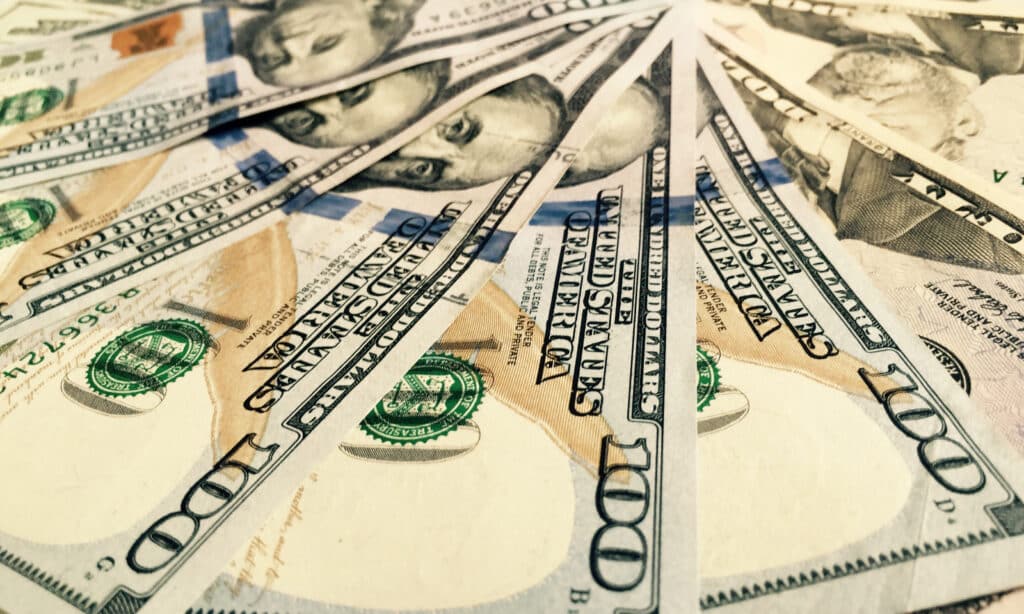Moving to a new country and figuring out the lay of the land can seem overwhelming — learning their financial system even more so. While it’s true, there are resources available to help you navigate it all, it can be hard to understand where to look and which ones to prioritize.
To help you build a new life in your new country, we’ve compiled some of the most important financial moves for immigrants to help set you up for success. These seven smart steps include:
Plan Out Goals For The Next Six Months
Moving to a new country will mean that there are a lot of expenses to take into consideration. This includes anticipated costs such as moving expenses, transportation and security deposits for a new apartment.
That’s why it’s important to map out your expenses for the next six months so you can set aside cash just in case — you may not be able to borrow money until you establish credit (more on this below).
To start, take a look at what you’ll need to move and settle into your new country. Adina Appelbaum, creator of Immigrant Finance, says to first look at your most pressing needs like hiring an immigration lawyer or sending money back to your home country. Once you’ve addressed those needs, look at the basics like housing, food and transportation.
Granted, it’s hard to estimate how much you’ll spend on variable costs like food and transportation, for example, but do your best and search online for approximate costs to arrive at a ballpark figure.
You May Also Like: A Financial Glossary for Everyone
Get a Spending Account
Getting the right spending account for your needs is a crucial move because it’ll be a place where you can keep your cash and conduct everyday transactions.
The good news is that it’s relatively easy for newcomers to open a spending account.
If you’re not sure where to start, look close to home. Akinyi Ochieng, who leads marketing and community partnerships at Nova Credit, suggests starting with your existing bank in your native country.
“If your bank has international branches, you may want to consider whether you can set up an account at a U.S. branch,” she says. ”Not only can this simplify the process of securing an account, but it may help you cut down on fees if you have to move money across borders.”
Even if your existing bank doesn’t offer this option or you’d prefer to open a spending account soon after arriving, you can find plenty of institutions offering many perks and benefits.
For example, online-based banks tend to offer higher interest rates for deposits and usually don’t charge monthly fees. Some may even offer cash bonuses for new account holders when opening new accounts and meeting requirements like depositing a certain amount of money within a predetermined time frame.
No matter which option you choose, get a spending account as soon as you can. This will make your transition to a new country much easier.
Find a Great Money Transfer App
The reality is that you’ll probably need to send money back and forth from your home country. Whether that’s transferring your money from abroad to your new spending account or sending money to your loved ones, you’ll need a safe money transfer service.
Sure, you can conduct a wire transfer with your bank, but this option can get expensive. Instead of potentially breaking your budget sending money back and forth, check out a money transfer app like Remitly.
Take a look at how fees differ depending on method of payment (such as using a debit or credit card) in addition to other ones such as add-ons to get your money there faster. In most cases, apps such as Remitly tend to be more budget-friendly than banks or brick-and-mortar services.
Don’t forget, when setting up your budget, to add in money or bank transfer fees. Get familiar with exchange rates, too, so you can plan ahead.
Learn How Credit Is Used
Credit is an important part of your financial life — it’s one way you can prove to various financial institutions you’re responsible with money. Your creditworthiness is measured via your credit score (the higher, the better) and is helpful when you’re applying for an apartment lease, financing a car, and even purchasing a home.
When you apply for an apartment lease or a car loan, for example, lenders will check your credit score with any of the three major credit reporting bureaus. These are Experian, Equifax and TransUnion in the U.S. This determines whether they approve your application. If you’ve just arrived, chances are you don’t have a credit score, which sometimes equates to having bad credit.
The less creditworthy you seem, the more likely you’ll be denied a loan (or lease) and if you do, you’ll be charged higher than average interest rates because you’re seen as risky to the lender.
In other words, there isn’t enough “proof” you’ll pay your rent or a loan on time, so lenders charge more, so they can ensure they’ll be able to recoup some of their investment (their money).
“Credit has historically been a catch-22 where you need credit history to access financial products, but you need credit to build a credit history,” Ochieng says. “It takes roughly five years to build home country-equivalent credit history for new-to-country consumers.”
Understanding how credit works also means learning about how to build your credit score — there are many ways to do so. One of the most popular ways is to open a credit card in your name and make on-time payments.
How credit cards work
To recap, a credit card is a type of revolving credit where you’re approved to borrow up to a predetermined amount of money.
You can borrow money by:
- making purchases on the card
- withdrawing cash (also called a cash advance)
You’ll receive a bill each month and pay it all off, or make at least the minimum payment and pay interest on the amount you borrowed.
Your credit card activity will generally be reported to the three major bureaus. That means making on-time payments will be noted on your credit report, showing you’re responsible with credit.
This can increase your credit score, helping you when getting approved for loans (and getting a lower interest rate) or securing an apartment.
Newcomers from certain countries who arrive in the U.S. may be able to access their international credit history. For example, some credit card companies accept credit reports from certain countries in their application.
Create a Budget
Once you arrive, you’ll get a better sense of how much things cost month to month, plus any occasional expenses that crop up (like car insurance and fees to get your driver’s license). It’s important to create a budget as soon as you can, so you’re able to afford the necessities.
“Managing money well is critical because there are plenty of people making a ton of money who don’t know how to manage it,” says Applebaum. “At the end of the day, if you can’t make the numbers work, you will struggle.”
Creating a budget doesn’t have to be difficult or complicated. To start, use your take home pay (your paycheck after paying taxes and other deductions like health insurance) to determine how much you can spend each month.
Then you break down your spending according to categories such as housing, food, transportation, and personal care, so you know the maximum amount you can spend each month.
What if I don’t have a lot of money?
If you’re unsure about how much to allocate, look at how much you’ve been spending so far to make estimates. There are also lots of resources available such as books and free videos online to help you — the library is a fantastic place to start.
Don’t have a job yet? Use the cash you have saved up for the move and go from there. Once you have a job, you can adjust your budget.
Remember, a budget isn’t meant to be static where you set it and forget it. Instead, you’ll need to review what is going in your life and adjust your spending according to your needs.
For example, you’re currently taking the bus to get around but want to purchase a car in a few months. When that happens you’ll need to figure out how you’ll make your car payments, pay for insurance, maintenance, and gas.
Set Up an Emergency Fund
An emergency fund is savings you set aside specifically for unexpected expenses or emergencies. Examples include unexpected car repairs, surprise medical bills, or needing to pay for basic necessities in the event you lose your job.
Ideally, you don’t touch this money unless you absolutely need it. Some people open a separate spending account at another financial institution, so they’re not tempted to touch it.
The point of an emergency fund is so you have cash on hand on a moment’s notice. It’s also to prevent you from having to rely on debt such as a credit card or personal loan, that is, assuming you have an established credit history to qualify for one.
Living in a new country where you may not have resources or a community around you is stressful enough. It’s best to prevent even more stress by having money you can use in case there is a need for it.
Seek Out Support
Finding people who’ve been where you are is one of the best ways to feel less alone. Plus, it’ll help you feel less overwhelmed as you’re starting a new job, opening a spending account or searching for housing.
“I encourage newcomers to look out for community groups whether they be for expats generally or for people hailing from their country of origin,” Ochieng says. “Folks there will have navigated the pain points of a cross-border move and will know how to help you avoid mistakes along the way.”
Ideally, you’ll be able to find these groups before you immigrate — ask friends and family members if there’s anyone they know. If you do, ask for their contact details and speak with them before you go or arrange a time to meet soon after you arrive.
Don’t worry if this isn’t possible for you. There are lots of organizations that help immigrants, depending on where you’re going to live. Some might be government or non-profit organizations whereas others are created around others from the same home country as you are.
These places welcome questions and can point you in the right direction, including recommending products or services and teaching you how to navigate financial systems.
The Bottom Line
Moving to a new country is an adventure you won’t soon forget. Although there may be a learning curve to grasping things like using a credit card or applying for an apartment lease, taking action on these seven smart financial moves will help to ensure you’re settling in faster.
Further Reading: Spring Cleaning with Your Finances: 3 Steps for a Fresh Start

